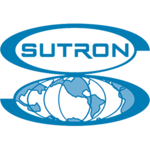Description

Adverity

MarketShare
Comprehensive Overview: Adverity vs MarketShare
Adverity and MarketShare are both analytics platforms used for marketing insights, but they serve slightly different purposes and target markets. Let’s break down each of these platforms with respect to the requested components:
a) Primary Functions and Target Markets
Adverity
- Primary Functions:
- Data Integration: Adverity specializes in integrating data from multiple sources to provide a unified view of marketing and sales performance. The platform offers extensive data connectivity options, allowing organizations to automate data harmonization and normalization.
- Data Visualization: It provides advanced data visualization capabilities to create customizable dashboards and reports.
- Analytics and Insights: Adverity uses augmented analytics, including predictive analytics, to identify trends and opportunities in vast datasets.
- Target Markets:
- Primarily targets marketing departments and agencies.
- Industries include e-commerce, retail, media, finance, and telecommunications.
MarketShare (Now Known as Neustar MarketShare)
- Primary Functions:
- Marketing Attribution: MarketShare's core functionality is providing marketing measurement and optimization solutions, particularly through marketing mix modeling and attribution.
- Scenario Planning: It allows businesses to simulate different marketing strategies to predict their potential impact.
- Resource Allocation: Helps in optimizing marketing budgets across various channels to maximize ROI.
- Target Markets:
- Large enterprises in sectors such as automotive, financial services, consumer packaged goods, and telecommunications.
- Primarily aimed at marketing executives and data analysts.
b) Market Share and User Base
Adverity
- Market Share: Adverity has been gaining traction, especially among mid-to-large-sized enterprises looking for robust data integration and visualization capabilities. Its market share is growing as data-driven decision-making becomes more critical across industries.
- User Base: Adverity boasts a diverse clientele that includes well-known brands across various sectors. While specific user base figures aren't publicly detailed, its presence is expanding, particularly in Europe and North America.
MarketShare
- Market Share: As a more established platform in marketing mix modeling and multi-touch attribution, MarketShare (now Neustar MarketShare) has a significant presence in its niche. It has been part of Neustar since 2015, which provided it with a broader base of resources and integrations.
- User Base: MarketShare serves many Fortune 500 companies and has a strong foothold among large enterprises seeking comprehensive marketing analytics solutions.
c) Key Differentiating Factors
Adverity
- Data Integration Focus: Adverity’s standout feature is its ability to connect and centralize disparate data sources, making it almost a one-stop-shop for data-driven insights.
- User-Friendliness: Known for its relatively user-friendly interface, making it accessible for users who might not have deep technical skills.
- Scalability: Offers scalable solutions suitable for companies of various sizes, especially those looking to integrate and visualize data without extensive IT resources.
MarketShare
- Attribution Precision: Strong emphasis on marketing attribution and resource allocation, which is critical for enterprises looking to precisely measure ROI across channels.
- Scenario and Predictive Modeling: Offers robust tools for simulating marketing strategies and predicting their outcomes, helping companies plan effectively for future campaigns.
- Integration with Neustar: Since its acquisition by Neustar, it benefits from enhanced capabilities in consumer identity and audience measurement, which are advantageous for personalized marketing strategies.
In summary, while both platforms cater to data-driven marketing needs, Adverity emphasizes data integration and visualization capabilities, making it ideal for companies that require comprehensive data management and insight generation. In contrast, MarketShare focuses deeply on marketing attribution and scenario analysis, making it valuable for large enterprises with complex, multi-channel marketing strategies.
Contact Info

Year founded :
2015
+43 1 8903155
Not Available
Austria
http://www.linkedin.com/company/myadverity

Year founded :
1999
Not Available
Not Available
Poland
Not Available
Feature Similarity Breakdown: Adverity, MarketShare
To compare Adverity and MarketShare, we can break down their features based on core functionalities, user interfaces, and unique offerings. Both platforms operate in the marketing analytics space but address different aspects and needs within that sector.
a) Core Features in Common
-
Data Integration: Both Adverity and MarketShare offer robust data integration capabilities. They allow users to connect and integrate data from multiple sources, supporting a variety of file types and data formats to create comprehensive datasets for analysis.
-
Marketing Analytics: Both platforms provide marketing analytics features that help users analyze their marketing data, track performance metrics, and generate insights to optimize campaigns and strategies.
-
Visualization and Reporting: They offer tools for visualizing data and generating customizable reports, allowing users to make data-driven decisions based on visual insights.
-
Automation: Automation of data collection and processing is available in both solutions, helping users save time and reduce manual work.
b) User Interface Comparison
-
Adverity: Adverity's user interface is designed to be user-friendly and accessible, with a focus on simplicity and ease of use. It emphasizes drag-and-drop features, customizable dashboards, and intuitive navigation, which is beneficial for users who might not have a technical background.
-
MarketShare: MarketShare, historically known for its more enterprise-oriented approach, has an interface that might be more complex but offers in-depth features suitable for sophisticated users. It often involves more detailed customization options and deeper analytical capabilities that can cater to advanced data scientists and analysts.
c) Unique Features
-
Adverity:
- AI-Powered Insights: Adverity leverages artificial intelligence to provide intelligent insights and anomaly detection. Its AI features help in forecasting trends and identifying patterns in data that might not be immediately visible.
- Simplicity and Accessibility: Targeting a broad user base, Adverity's focus on user-friendly interfaces makes it accessible to non-technical marketers and smaller teams.
-
MarketShare:
- Attribution Models: MarketShare is renowned for its advanced attribution capabilities, providing deep insights into the contributions of various marketing channels to overall performance. This is critical for organizations looking to optimize their media spend.
- Scenario Analysis: MarketShare offers features for scenario planning and forecasting, allowing businesses to simulate different marketing strategies and their potential impacts on performance before implementation.
In summary, while both Adverity and MarketShare offer solid data integration and marketing analytics capabilities, they approach the market from slightly different angles. Adverity focuses on ease of use and AI-driven insights for a broad range of users, whereas MarketShare offers deep analytical capabilities and advanced attribution modeling suited for more complex, enterprise-level needs.
Features

Not Available

Not Available
Best Fit Use Cases: Adverity, MarketShare
Adverity and MarketShare are both valuable tools for data analytics and marketing strategy, but they serve different purposes and are best suited for different use cases. Here's a detailed look at their best fit scenarios:
Adverity
a) Best fit use cases for Adverity:
-
Types of Businesses or Projects:
- Marketing Agencies: Adverity is particularly valuable for marketing agencies that need to handle multiple client accounts. Its ability to integrate and harmonize data from various sources allows agencies to provide comprehensive insights to their clients.
- E-commerce and Retail: Businesses in these sectors can greatly benefit from Adverity’s capability to aggregate data from multiple online platforms, providing a holistic view of marketing performance across channels.
- Mid to Large Enterprises: Companies that have a complex marketing landscape requiring integration of data from numerous digital and offline sources will find Adverity highly beneficial for creating unified dashboards and reports.
-
Key Features:
- Data Integration: Adverity excels in data integration, providing seamless connections to hundreds of data sources, which helps businesses automate data ingestion and transformation processes.
- Actionable Insights: Users can leverage sophisticated data visualization tools and AI-driven insights to make informed marketing decisions.
-
Use Cases:
- Performance Optimization: Businesses can optimize marketing campaigns by continuously monitoring and adjusting based on real-time, integrated data.
- Cross-Channel Analysis: It enables companies to track and analyze the performance of marketing efforts across various channels, providing insights into which strategies yield the best ROI.
MarketShare
b) Preferred scenarios for MarketShare:
-
Types of Businesses or Projects:
- Large Enterprises with Complex Marketing Strategies: MarketShare is ideal for larger organizations where the marketing mix is complex, and there is a need to measure and optimize marketing allocations and investments.
- Consumer Packaged Goods (CPG), Automotive, and Telecommunications: Industries with significant advertising budgets and diverse marketing channels, requiring detailed ROI analysis and optimization strategies, can benefit from MarketShare’s capabilities.
-
Key Features:
- Marketing Mix Modeling (MMM): MarketShare specializes in helping businesses understand the impact of their marketing actions through marketing mix modeling, evaluating the effectiveness of different channels.
- Predictive Analytics: It provides predictive insights that help in understanding the potential outcomes of allocating budgets across different marketing channels.
-
Use Cases:
- Budget Allocation: Marketers can leverage MarketShare to optimize their budget allocation based on the predicted performance of various channels.
- Performance Forecasting: With data-driven modeling, businesses can foresee the impact of their marketing strategies and make adjustments to maximize ROI.
Catering to Different Industry Verticals or Company Sizes:
-
Adverity is versatile, catering to a wide range of industries like e-commerce, retail, and media due to its robust data integration and visualization capabilities. It is suitable for mid-sized to large enterprises, especially those with diverse data sources needing centralized reporting.
-
MarketShare mainly caters to large enterprises, particularly in industries with extensive marketing investments such as CPG, automotive, and telecommunications. These companies often require detailed analysis to understand and optimize their marketing spends and strategies.
In summary, Adverity is well-suited for businesses aiming to streamline data integration and gain a unified view of marketing performance, while MarketShare is preferred for enterprises that require in-depth analysis and optimization of their marketing spends across various channels.
Pricing

Pricing Not Available

Pricing Not Available
Metrics History
Metrics History
Comparing teamSize across companies
Conclusion & Final Verdict: Adverity vs MarketShare
Conclusion and Final Verdict
When evaluating Adverity and MarketShare for marketing data analytics and insights, it's crucial to weigh various elements such as features, ease of use, integration capabilities, pricing, scalability, and the level of support offered. Each product has its strengths and weaknesses, making them suitable for different types of users with specific needs.
a) Which product offers the best overall value?
Adverity generally provides the best overall value for organizations that prioritize integration capabilities and flexibility. Its strong suite of data connectivity options allows businesses to centralize their marketing data effortlessly from a myriad of sources, which is crucial for data-driven decision-making.
However, if an organization is highly focused on gaining insights into their marketing strategy's ROI through advanced predictive analytics, MarketShare might offer superior value. MarketShare's robust marketing mix modeling and attribution capabilities can deliver in-depth insights on how different factors contribute to overall performance, allowing for more strategic planning.
b) Pros and Cons of Each Product
Adverity
-
Pros:
- Extensive data integration capabilities, supporting a wide array of marketing platforms and data sources.
- User-friendly interface suitable for non-technical users.
- Strong ETL (Extract, Transform, Load) features that facilitate data manipulation and visualization.
- Scalability to meet the needs of growing businesses.
-
Cons:
- Higher learning curve for users looking to use more advanced features.
- Pricing can become a concern for smaller companies due to potential perceptions of high cost.
MarketShare
-
Pros:
- Excellent analytical capabilities for marketing mix modeling and attribution.
- Strong focus on ROI analysis, providing actionable insights on marketing investments.
- Well-suited for large enterprises looking for detailed performance metrics.
-
Cons:
- Steeper learning curve due to advanced analytics features.
- Integration may require more effort compared to solutions like Adverity.
- The pricing model may not be cost-effective for smaller businesses or those with simpler needs.
c) Specific Recommendations for Users
For users trying to decide between Adverity and MarketShare, consider the following recommendations:
-
Evaluate Your Integration Needs: If your organization requires extensive data integration across numerous platforms and data sources, Adverity stands out as a more practical solution.
-
Assess Analytical Requirements: If advanced marketing analytics and predictive modeling are high on your list, MarketShare could better meet your needs.
-
Budget and Resources: Take into account your organization's budgetary constraints and resource availability. If you are a smaller company or have limited funds for marketing analytics, a careful review of each product's pricing and total cost of ownership will be crucial.
-
Scalability and Growth Plans: Consider what your company will need as it grows. If scaling up your data capabilities is a priority, Adverity's scalable architecture might serve you well in the long term.
-
Trial and Feedback Approach: If feasible, it is advisable to utilize free trials or proof-of-concept projects with both products to gauge which platform aligns better with your team's workflow and delivers the insights most valuable to your organization.
Ultimately, the best choice will depend on your unique marketing and analytics goals, the complexity of your data sources, and the strategic insights you aim to derive from your campaigns.
Add to compare
Add similar companies




